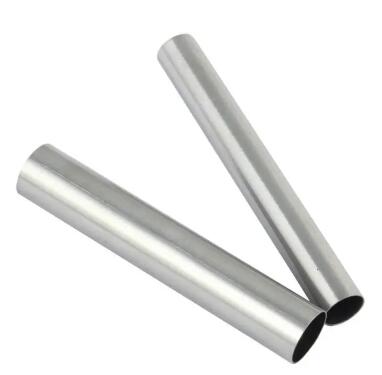Unveiling the Corrosion Resistance of 904L Stainless Steel: A Comparative Analysis
2024-01-11
Introduction:
Corrosion resistance is a paramount characteristic when selecting materials for critical applications, particularly in industries where exposure to harsh environments is a constant challenge. In the realm of stainless steel, 904L Stainless Steel emerges as a standout contender, renowned for its exceptional corrosion resistance. In this blog post, we will explore and compare the corrosion resistance of 904L Stainless Steel with other stainless steel grades to understand why it is the material of choice in demanding environments.
Understanding Corrosion Resistance:
Corrosion resistance is the ability of a material to withstand the deteriorating effects caused by chemical reactions with its environment. Stainless steels, in general, exhibit good corrosion resistance due to the presence of alloying elements that form a protective oxide layer on the surface. However, the degree of resistance can vary significantly among different stainless steel grades.
Comparing 904L Stainless Steel with Other Grades:
1. Austenitic Stainless Steels (e.g., 304, 316):
- While austenitic stainless steels like 304 and 316 offer commendable corrosion resistance, they may face challenges in highly corrosive environments, especially those containing chlorides.
- In contrast, 904L Stainless Steel surpasses these grades in chloride-rich conditions, making it a superior choice for applications such as coastal and chemical processing.
2. Duplex Stainless Steels (e.g., 2205):
- Duplex stainless steels, with a two-phase microstructure, offer a balanced combination of strength and corrosion resistance.
- However, in environments with concentrated sulfuric acid or harsh reducing acids, 904L Stainless Steel, with its elevated nickel and copper content, outperforms duplex grades.
3. Ferritic Stainless Steels (e.g., 430):
- Ferritic stainless steels are known for their corrosion resistance but may not match the performance of austenitic grades in certain aggressive environments.
- 904L Stainless Steel's superior resistance to sulfuric acid and other reducing acids makes it a preferred choice over ferritic grades in specific applications.
4. Martensitic Stainless Steels (e.g., 410):
- Martensitic stainless steels are hardened by heat treatment and are resistant to corrosion to some extent.
- However, they generally fall short in corrosive environments compared to austenitic and duplex grades, and 904L Stainless Steel is preferred for superior corrosion resistance.
Conclusion:
In the realm of stainless steel, 904L stands as a corrosion-resistant champion, outshining many other grades, especially in challenging environments involving chlorides, sulfuric acid, and reducing acids. Its unique composition, featuring elevated levels of chromium, nickel, molybdenum, and copper, contributes to its remarkable ability to withstand corrosive attacks. When reliability and longevity are paramount, 904L Stainless Steel emerges as the material of choice, ensuring optimal performance in the face of corrosive challenges.



